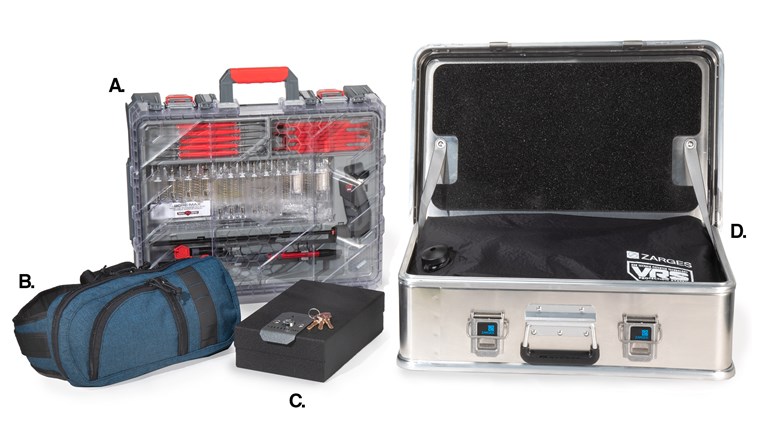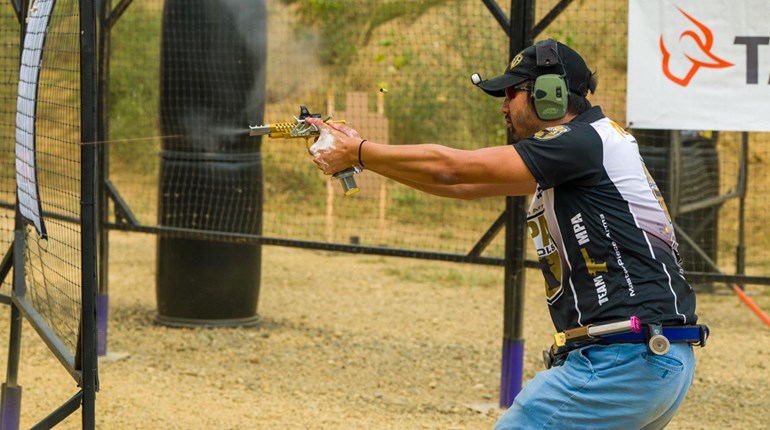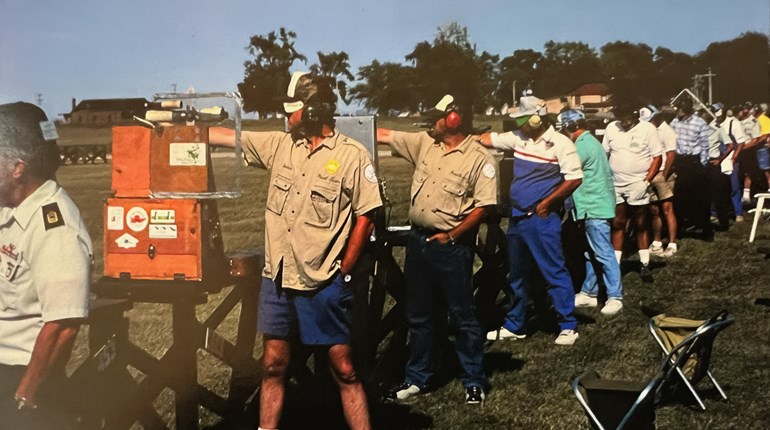
A Reference Rifle
Just so we’re clear: As far as we know, “Reference” is not a new rifle manufacturer. Rather, we’re using the term to ID a project unfolding on your behalf: The building of a standard platform from which we’ll test ammunition, optics and other key elements of modern riflecraft.
Our scheme is hardly a new one: Reference platforms are common in many disciplines to limit the number of variables that can alter experimental results. We’re hoping to do the same. And if nothing else, it means you won’t have to plow through identical references over and over again: You’ll know where we start. And just ignore those (faint) howls of glee emanating from 38.86N, 104.76W.

Here we go:
The Caliber
Might as well take the heat right away: We chose .308 Winchester. We pause for the squeals and vituperation to dissipate.
<<Cue semi-tonal whistling, drumming of fingers>>
Yes, we know it isn’t necessarily the most accurate. Yes, we know it isn’t necessarily the flattest-shooting. Yes, we know it doesn’t deliver the most power. And yes, we know it’s a long way from the newest, whiz-bangiest, sexiest cartridge out there. But even serious detractors would have to concede it remains a tremendously accurate, reliable, versatile and popular cartridge because it deserves to. As a way to talk about riflecraft and the accouterments thereto, a “better”—in terms of being closer to the experiences and kit of most shooters—is tough to imagine.
The Action
While there are some fabulous semi-auto rifles (we’ve shot several for you recently from Colt and Ruger), we chose a bolt action for a very simple reason: It factors out uncommon or differing functionality that can accompany design differences (like gas vs. piston). There are a lot of fabulous bolt guns out there, but we chose to stick with both the familiar and demonstrably excellent—the Remington 700. It doesn’t hurt that it’s been around for decades, or that it remains very affordable, either.
The Guts

We concede we took the (or another?) line of least resistance here: We called up the best rifleman we know. Come to think of it, it may be the best rifleman anybody knows: David Tubb. As he usually does, he listened, made no pointed comments about what we always fear is obvious ignorance, and simply replied: “It’s in the mail.” What “it” turned out to be was a T7T two-stage trigger, and his Speedlock Firing Pin Assembly. Universe-class, six-ways-from-Sunday adjustability and lock-time scrapped to the minimum: Oh great! Now if it doesn’t shoot, there are two more proofs that it’s all on us. If it does shoot, we’re pretty sure he’ll deserve the credit anyway. Sigh.
The Barrel
Just one word here: Krieger. We put it to Andy Krieger of the famed Richfield, Wis., barrel makers what we were after, and in excruciatingly polite Midwestern fashion, he had us snowed under in about 35 or 40 seconds. Recommendations from him were followed by a lot of nodding from us, and as if by magic, the barrel appeared a few weeks later. Stainless fluted, 1-in-10 twist, it reminds us of the old sports car quip: “It looks fast just sitting still.”
The Stock

This will be the first of our tests, sorta. Masterpiece Arms sent us one of their MPA “BA” models, and our reaction is limited to a non-verbal: “Gulp,” perhaps, is the closest we can come. A litany of glorious features attend this 6061 aluminum sculpture: A “V” bedding system, adjustable cheek riser and LOP stock, built-in rear mono-pod, bubble-level and AICS magazine compatibility are just the beginning. So why’d we say “sorta?” Hard to imagine what’ll make us want to change, that’s why.
So look forward to some rundowns in the future months that feature the Reference Rifle as a (mostly) unchanging platform. We have a bunch of optics and ammo lined up to start, but cans, comps and a bunch of bullets/handloads are on the menu, too.
Who knows where it’ll take us?


































